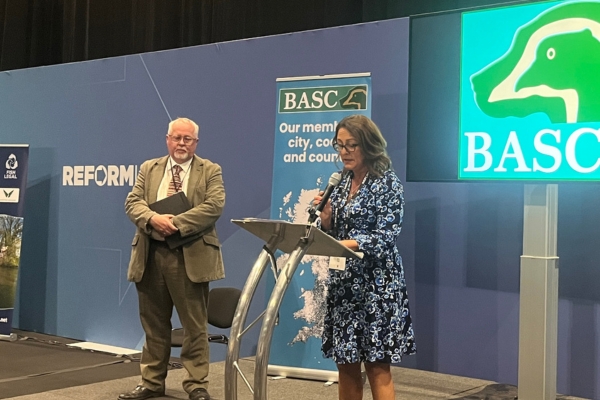
BASC’s role in conservation praised at the Reform UK Conference
More than 200 people attended a packed rural reception hosted by BASC and the Angling Trust at the Reform UK Party Conference.
Get information on the legal shooting season for mammals and birds in the UK.
Apply for funding for your project or make a donation today
Comprehensive information and advice from our specialist firearms team.
Everything you need to know about shotgun, rifle and airgun ammunition.
Find our up-to-date information, advice and links to government resources.
Everything you need to know on firearms law and licensing.
All the latest news and advice on general licences and how they affect you.
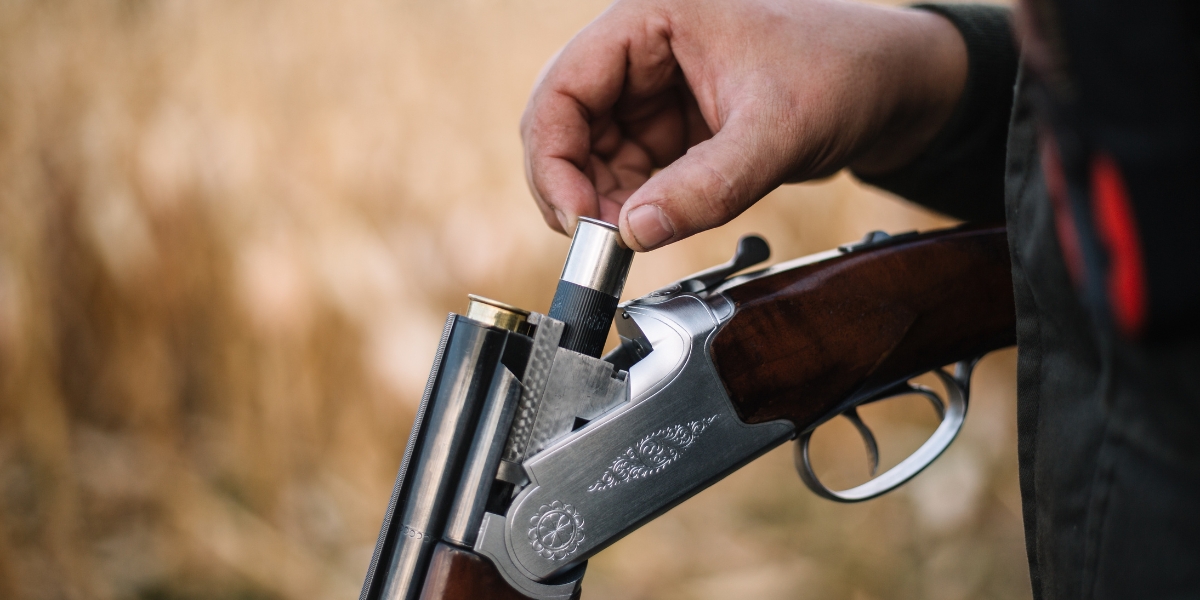
The Health and Safety Executive has sent its final recommendations to the government on restriction proposals for the outdoor recreational use of lead ammunition in England, Scotland and Wales.
The announcement is the culmination of a public consultation launched in 2022, which has run alongside a voluntary transition away from lead shot and single use plastics, committed to in 2020 by nine leading rural organisations, including BASC.
These are the final recommendations from the Health and Safety Executive (HSE) – they are not yet law. The documents have been sent to the appropriate authorities (Defra, Scottish government and Welsh government) who will assess the proposals. A period of 12 weeks is allowed to review the proposals, and either accept them in their entirety, or request more information from the HSE.
Once accepted, the recommendations will form the basis of draft legislation to be presented to parliament. There is no fixed timeline for when the draft legislation could come into force as law.
BASC has lobbied for changes to the restrictions throughout the process, many of which have been accepted. You can read more about these below. BASC and its partner organisations will continue to engage with government and its agencies to ensure that the final set of rules regarding lead ammunition are practical and based on evidence.
Throughout the process, BASC has made it clear there were some forms of lead ammunition that could be replaced, and others for which it was unnecessary. Through our various submissions to the consultation, including submissions made by BASC members, we have strived to strike that balance.
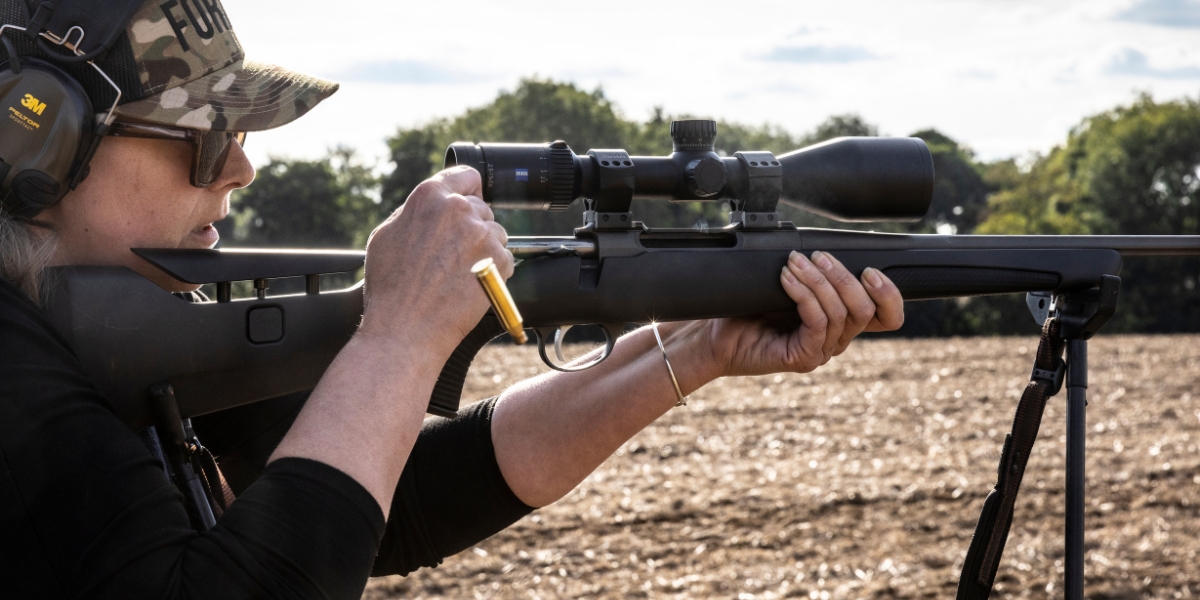
Shotgun ammunition for live quarry and target shooting
A restriction on the sale and use has been proposed with a transition timeline of five years. There will be a derogation for current and prospective Olympic and Paralympic athletes to continue using lead shot for target shooting. This will be subject to a cap on the number of cartridges they can use. That cap is 1.25 million which equates to 0.7 per cent of the cartridges previously used for target shooting with shotguns.
Live quarry shooting with rifles
A precautionary restriction has been recommended on the sale and use of large calibre ammunition with a timeline of three years. Large calibres have been reclassified as .243 (6.17mm) and above. No restrictions have been proposed on small calibres below .243. Ammunition will need labelling for live quarry or target shooting after the transition period.
BASC does not support the recommendation that .243 should be included as a large calibre. We will be investing in additional research to underpin further submissions to government.
Target shooting with rifles
Ranges that cannot de-lead* have two years to adapt or move across to non-lead alternatives. Ranges that can comply with these measures face no restrictions.
Airguns live quarry or target shooting
No restriction proposed.
Read about the proposals in more detail and where BASC stands on each, here.
*The term de-lead refers to a series of risk management measures, which you can find out more about here.
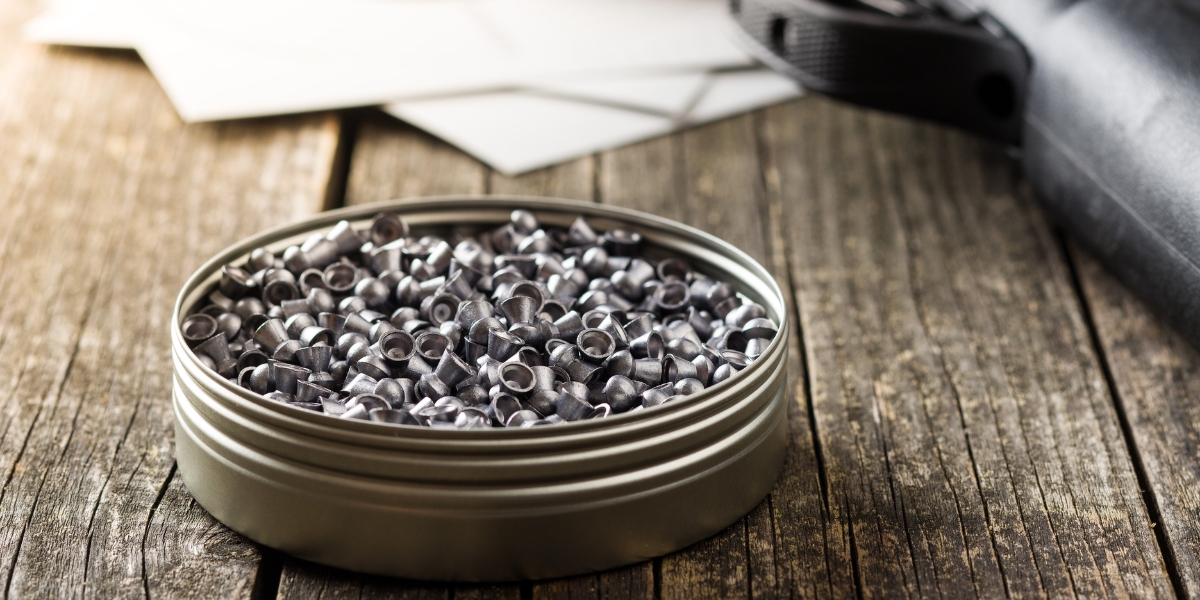
BASC has always been opposed to an outright ban on lead ammunition on the grounds that there were no viable alternatives for many types of calibre and firearm, but it was clear the direction of travel was towards increased regulation.
In February 2020, BASC stood alongside eight other rural organisations in proposing a voluntary transition to lead-free ammunition and an end to single-use plastics for live quarry shooting.
In consideration of wildlife, the environment and to ensure a market for game products at home and abroad, we reasoned that an end to both lead and single-use plastics in shotgun cartridges would help maintain the shooting community’s position at the forefront of wildlife conservation and protection.
By calling for a voluntary transition, our collective goal was to prove that self-regulation could work and would allow us to influence and shape government policy in the best way to achieve a sustainable future for shooting.
This was, and still is, an opportunity to take the initiative and ensure the reputation of the shooting community as custodians of the countryside.
Because of the voluntary transition, we are now better prepared as a sector for change. It gave us time to inform the shooting community of the changes coming and provide sustainable ammunition shooting days to introduce those who shoot to lead-free shotgun cartridges.
It gave the ammunition manufacturers time to make significant progress and deliver a range of viable alternatives to lead, even against a backdrop of global supply chain issues. Some shoots are now lead-free, with their game being sold in supermarkets across the UK. Other shoots are ready and willing to go lead-free in the future.
Being a part of the conversation has allowed us to make the case that any laws affecting ammunition should be practical, easy to comply with, and proportionate to evidenced risk.
This is why we lobbied for changes in the restrictions the HSE was recommending and achieved the following:
In response to the announcement BASC’s chief spokesperson on lead ammunition, Terry Behan, said: “BASC has always been opposed to an outright ban on lead, but it was clear the direction of travel was towards increased regulation.
“By calling for a voluntary transition, we have effectively given the sector a ten-year timeline to adapt, and significant progress has been made – ammunition manufacturers have delivered a range of viable alternatives to lead, and many shoots are now lead-free, with their game being sold in supermarkets across the UK.
“While we are pleased the HSE has taken on board the evidence provided by BASC and other organisations relating to airguns and target shooting, we have concerns over the reclassification of large calibre rifles.”
On the reclassification of large calibres to .243 and above, he added: “We don’t support the HSE’s decision to include .243 as a large calibre and have urged them to reconsider. It’s important to remember this is not yet law, just a set of recommendations. With that in mind, BASC will be investing time and money on behalf of our members into research and testing. We will use this to continue to lobby the government as to why this proposal is unworkable.”
As outlined above, Defra, the Scottish government and Welsh government have 12 weeks to review the proposals, and either accept them in their entirety, or request more information from the HSE.
When accepted, the recommendations will form the basis of draft legislation to be presented to parliament. There is no fixed timeline for when the draft legislation could come into force as law.
BASC will continue to lobby and work with MPs and Ministers to ensure the final legislation is practical and based on evidence.

More than 200 people attended a packed rural reception hosted by BASC and the Angling Trust at the Reform UK Party Conference.
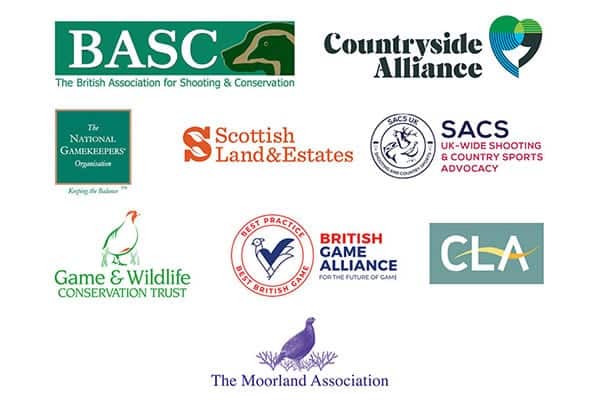
Together we wish to see an end to both lead and single-use plastics in ammunition used by those taking all live quarry with shotguns within five years.
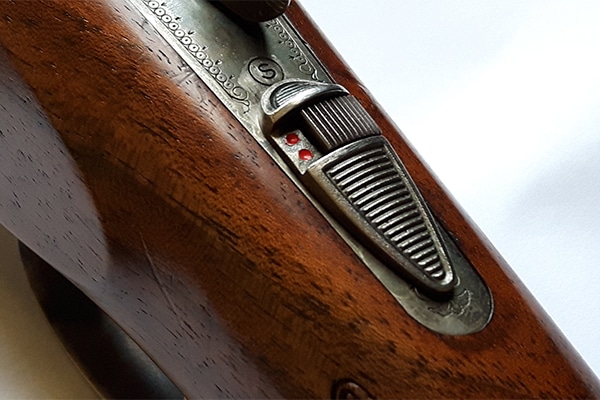
We share a letter sent by a BASC member to the Policing Minister on plans to consult on moving Section 2 certification (shotguns) to Section 1 (mostly rifles).